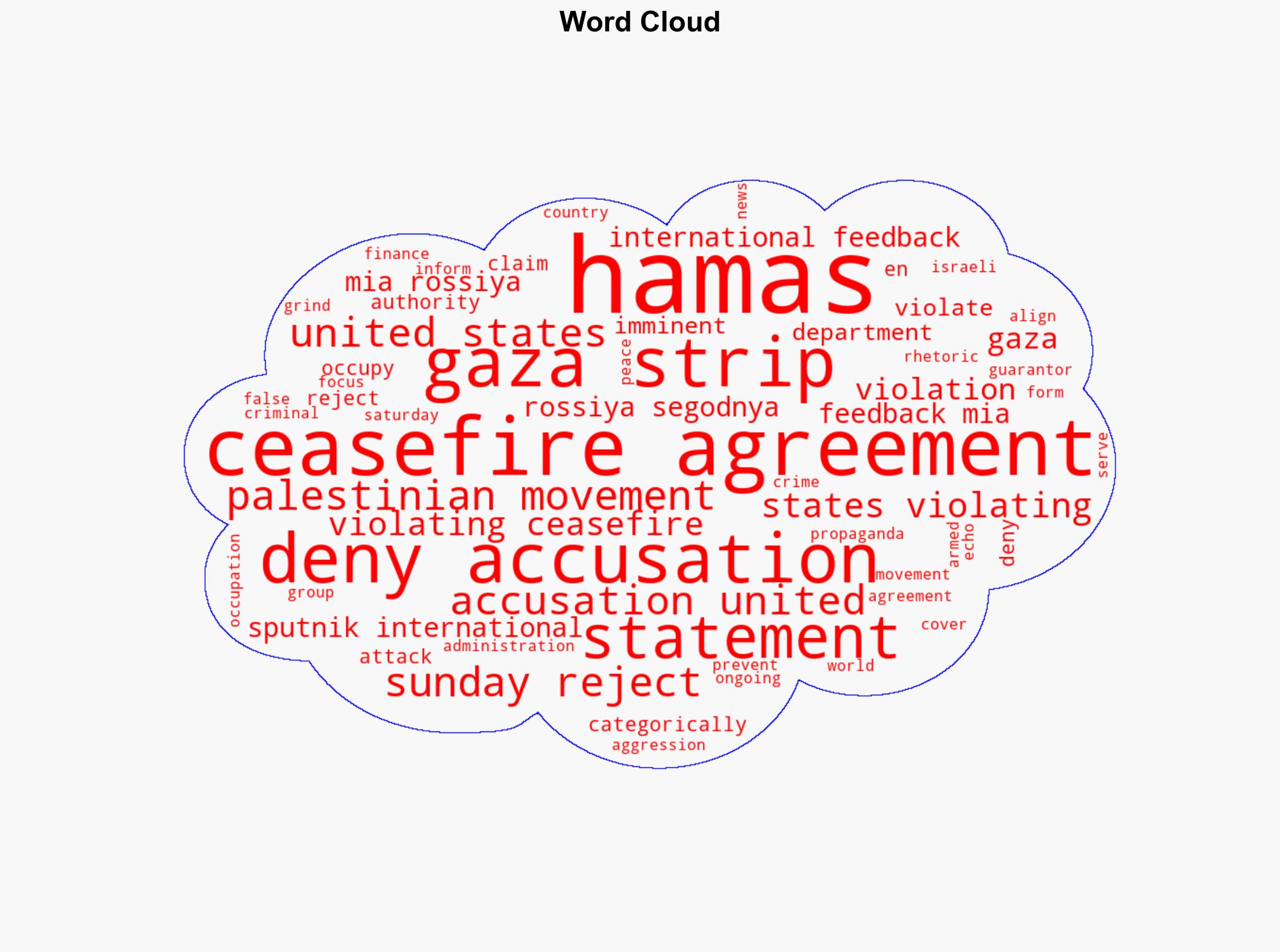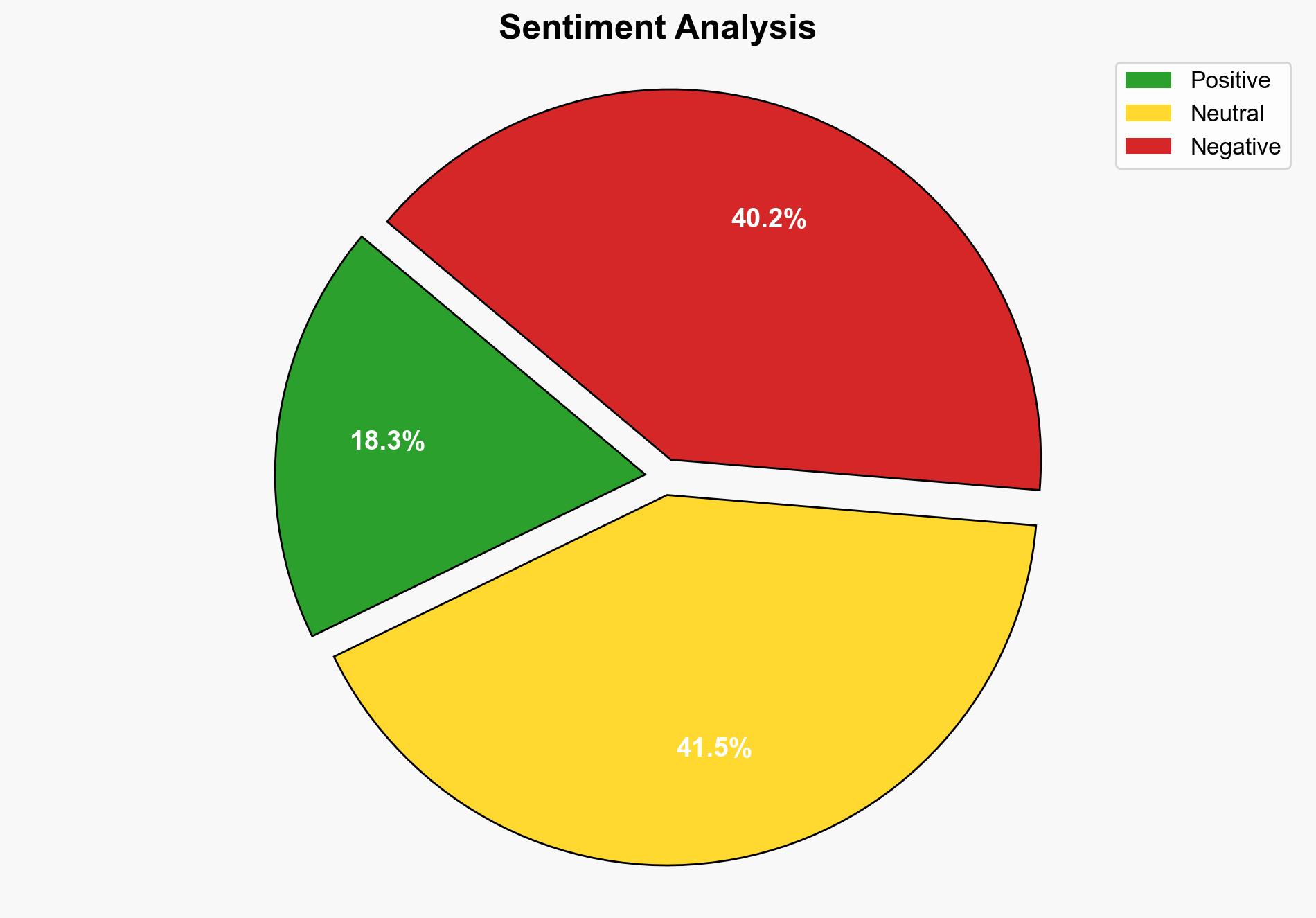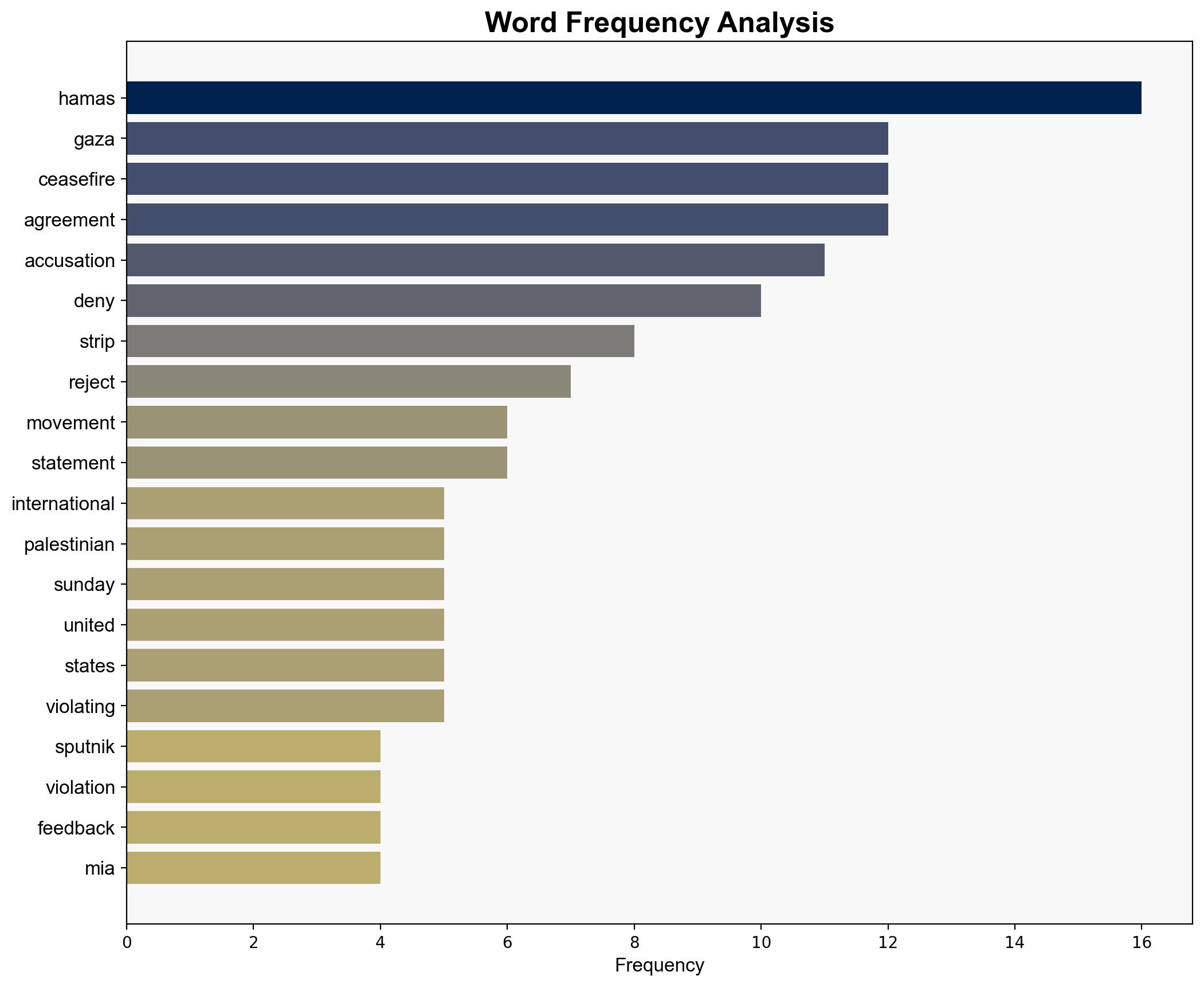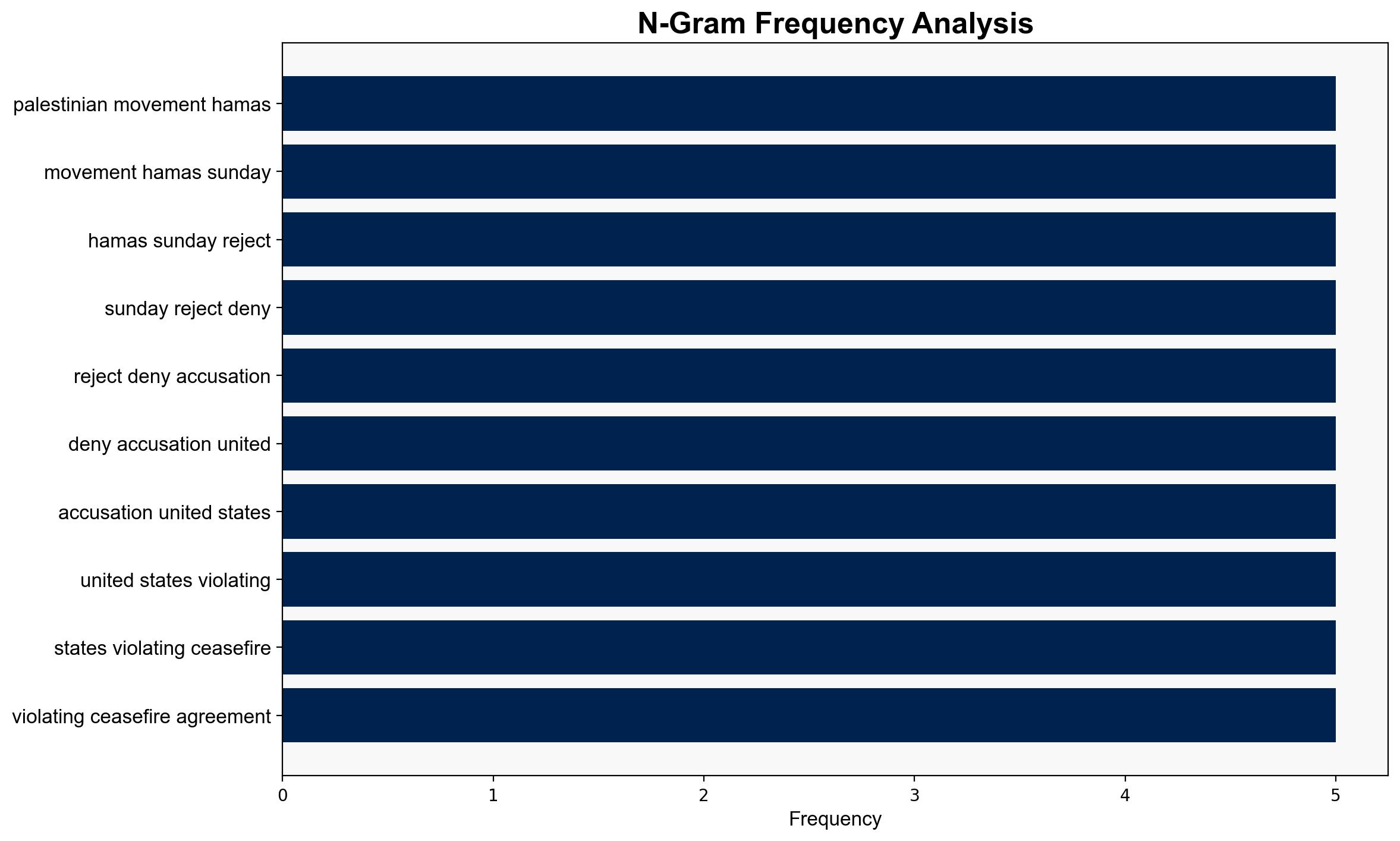Hamas Denies US Accusations of Violating Gaza Ceasefire Agreement – Sputnikglobe.com
Published on: 2025-10-19
Intelligence Report: Hamas Denies US Accusations of Violating Gaza Ceasefire Agreement – Sputnikglobe.com
1. BLUF (Bottom Line Up Front)
The most supported hypothesis is that Hamas is denying the US accusations to maintain its political legitimacy and avoid international backlash. Confidence level is moderate due to the lack of corroborative evidence and the potential for bias in the source. Recommended action is to increase intelligence collection on ground activities in Gaza and diplomatic communications to verify claims and counterclaims.
2. Competing Hypotheses
1. **Hamas Denial is Genuine**: Hamas is truthfully denying the accusations of ceasefire violations and the US claims are based on incorrect or misinterpreted intelligence.
2. **Hamas Denial is Strategic**: Hamas is denying the accusations to maintain political legitimacy and avoid international backlash, despite potentially planning or engaging in activities that could be construed as violations.
Using Analysis of Competing Hypotheses (ACH), the second hypothesis is better supported. The denial aligns with Hamas’s interest in maintaining its image and avoiding escalation, especially given the source’s potential bias and lack of independent verification.
3. Key Assumptions and Red Flags
– **Assumptions**: The US intelligence is accurate and unbiased; Hamas’s denial is purely strategic.
– **Red Flags**: The source, Sputnik, may have inherent biases; lack of independent verification of claims; potential cognitive bias in interpreting statements from involved parties.
– **Blind Spots**: Limited visibility into actual ground conditions and internal Hamas deliberations.
4. Implications and Strategic Risks
– **Geopolitical**: Continued accusations and denials could strain US-Palestinian relations and impact broader Middle East peace efforts.
– **Escalation**: Misinterpretations or false accusations could lead to renewed hostilities, impacting regional stability.
– **Psychological**: Propaganda and misinformation could influence public perception and exacerbate tensions.
5. Recommendations and Outlook
- Enhance intelligence-sharing mechanisms with allies to verify claims independently.
- Engage in diplomatic dialogue with regional stakeholders to de-escalate potential tensions.
- Scenario Projections:
- Best Case: Verification of compliance by all parties leads to strengthened ceasefire.
- Worst Case: Miscommunication leads to renewed conflict.
- Most Likely: Continued diplomatic posturing with intermittent skirmishes.
6. Key Individuals and Entities
– Hamas
– United States Department of State
– Sputnik International
7. Thematic Tags
national security threats, cybersecurity, counter-terrorism, regional focus





